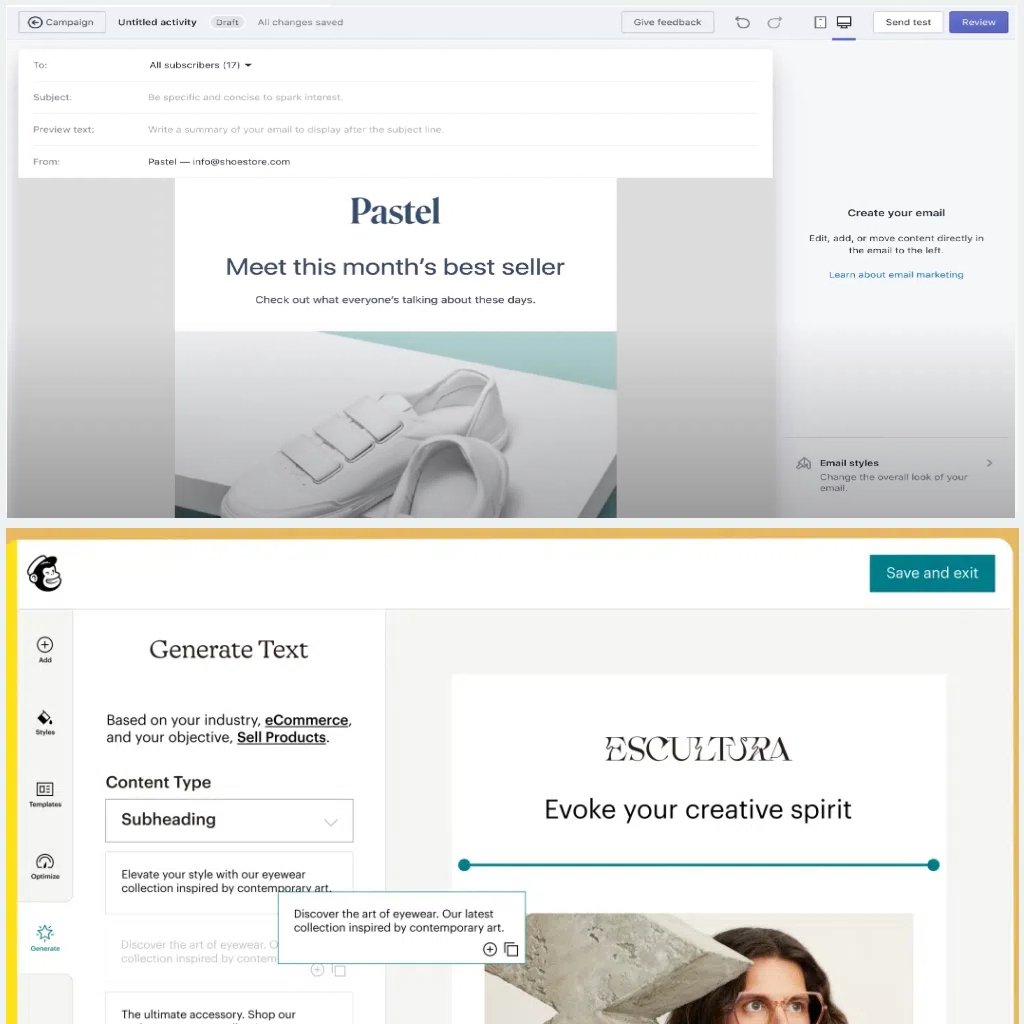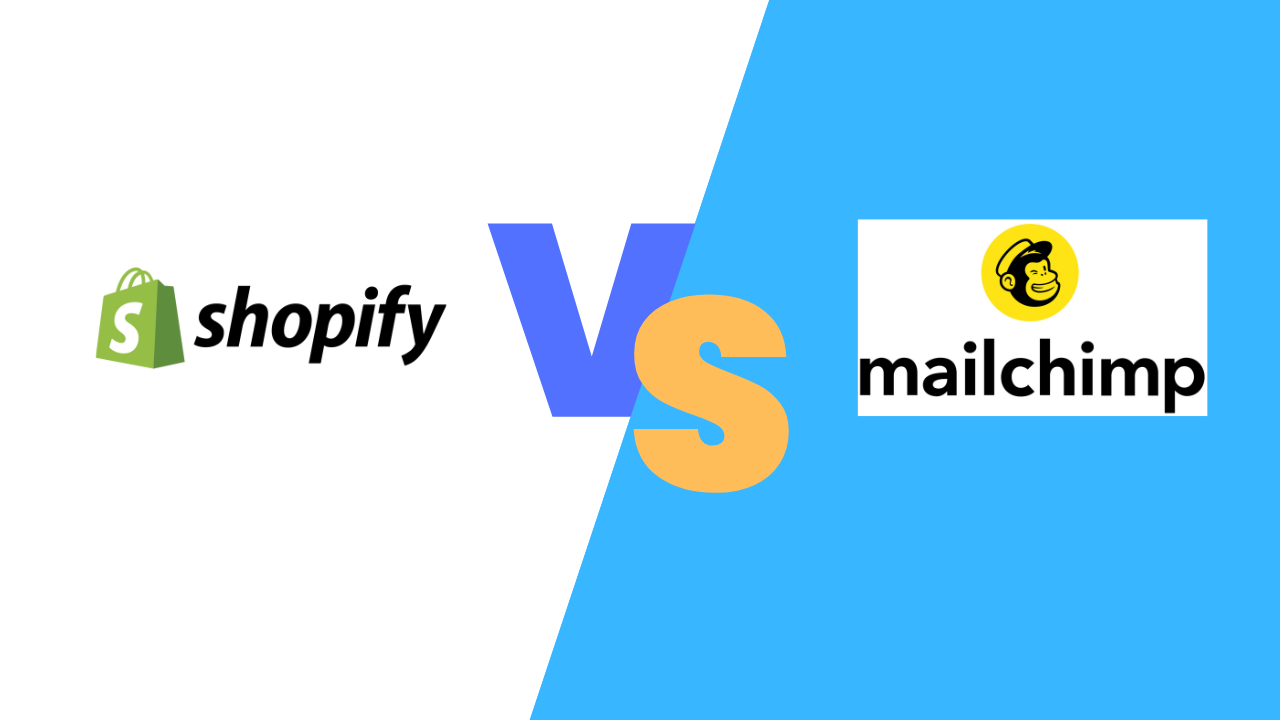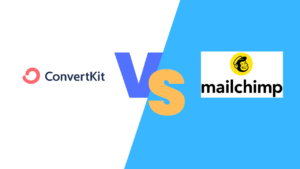Shopify Email vs Mailchimp: In the fast-paced world of e-commerce, selecting the right email marketing tool can be the difference between thriving and merely surviving. As we navigate through 2024, two titans of the industry, Shopify Email and Mailchimp, continue to dominate the conversation. But which platform truly reigns supreme? This comprehensive guide will unravel the intricacies of these powerhouse tools, empowering you to make an informed decision that could catapult your business to unprecedented heights. Whether you’re a seasoned entrepreneur or a newcomer to the e-commerce landscape, prepare for a journey that could revolutionize your marketing strategy and transform your business forever.

Table of Contents
The Epic Battle: Shopify Email vs Mailchimp
User Interface and Ease of Use
Shopify Email:
- Seamlessly integrated with your Shopify store
- Intuitive drag-and-drop editor
- Pre-designed templates tailored for e-commerce
Mailchimp:
- Standalone platform with a slight learning curve
- Robust design options for creative freedom
- Extensive template library for various industries
When it comes to user-friendliness, Shopify Email takes the lead for Shopify store owners. Its native integration means you’re already familiar with the interface, making it a breeze to create and send emails. However, Mailchimp’s versatility shines for businesses looking for more advanced design capabilities.
[Image: Screenshots of Shopify Email and Mailchimp’s email editors, showcasing their drag-and-drop interfaces and template options. The image is left-aligned, with dimensions 400x300px.] Alt text: Comparison of Shopify Email and Mailchimp email editors for e-commerce marketing Prompt: Create side-by-side screenshots of Shopify Email and Mailchimp email editors, highlighting drag-and-drop interfaces and template options. Use a clean, professional layout with contrasting color schemes.
Automation and Segmentation
Shopify Email:
- Basic automation features
- Limited segmentation options
- Ideal for simple, straightforward campaigns
Mailchimp:
- Advanced automation workflows
- Powerful segmentation tools
- Perfect for complex, targeted marketing strategies
If you’re looking to create sophisticated, behavior-triggered email sequences, Mailchimp is the clear winner. Its robust automation and segmentation features allow for highly personalized customer journeys. Shopify Email, while improving, still lags behind in this department.
Analytics and Reporting
Shopify Email:
- Direct integration with Shopify analytics
- Real-time sales tracking
- Limited in-depth reporting options
Mailchimp:
- Comprehensive analytics dashboard
- A/B testing capabilities
- Detailed engagement metrics and ROI tracking
For data-driven marketers, Mailchimp offers a more comprehensive suite of analytics tools. However, Shopify Email’s direct integration with your store’s sales data provides invaluable insights for e-commerce businesses focusing on immediate conversions.
[Image: Comparison of analytics dashboards from Shopify Email and Mailchimp, showing key metrics and reporting features. The image is right-aligned, with dimensions 400x300px.] Alt text: Analytics comparison between Shopify Email and Mailchimp for e-commerce email marketing Prompt: Create a side-by-side comparison of Shopify Email and Mailchimp analytics dashboards, showcasing key metrics and reporting features. Use a data-focused design with graphs and charts in a blue and green color scheme.
Pricing and Value
Shopify Email:
- Free for the first 10,000 emails per month
- Affordable pricing tiers based on email volume
- No additional subscription required for Shopify users
Mailchimp:
- Free plan available with limited features
- Tiered pricing based on features and list size
- Standalone cost on top of your Shopify subscription
Budget-conscious entrepreneurs might lean towards Shopify Email, especially if they’re already Shopify users. However, Mailchimp’s extensive feature set could justify the additional cost for businesses requiring advanced marketing capabilities.
Integrations and Ecosystem
Shopify Email:
- Natively integrated with Shopify ecosystem
- Limited third-party integrations
- Ideal for businesses fully committed to Shopify
Mailchimp:
- Vast array of integrations with various platforms
- Powerful API for custom integrations
- Suitable for businesses using multiple tools and platforms
Mailchimp’s extensive integration capabilities make it a versatile choice for businesses using a diverse tech stack. However, if your business revolves entirely around Shopify, the seamless integration of Shopify Email could be more beneficial.
Frequently Asked Questions:
Q1: Can I use Mailchimp with my Shopify store? A: Yes, but it requires a third-party app and some setup. The native integration was removed in 2019, making the process less seamless than before.
Q2: Does Shopify Email offer abandoned cart recovery emails? A: Yes, Shopify Email includes basic abandoned cart recovery features, though they may not be as advanced as some standalone email marketing platforms.
Q3: Which platform offers better deliverability rates? A: Both platforms boast high deliverability rates. However, Mailchimp’s longer history in email marketing gives it a slight edge in terms of sender reputation and deliverability optimization.
Q4: Can I migrate my email list from Mailchimp to Shopify Email? A: Yes, you can import your email list from Mailchimp to Shopify Email, but you may need to manually recreate some of your more complex automations and segments.
Q5: Which platform is better for growing my subscriber list? A: Mailchimp offers more advanced list-building tools and pop-up forms. However, Shopify Email’s integration with your store makes it easy to capture customer emails at checkout.
Conclusion
In the Shopify Email vs Mailchimp showdown, both platforms showcase unique strengths and potential weaknesses. Shopify Email excels in its simplicity and seamless integration with the Shopify ecosystem, making it an excellent choice for small to medium-sized e-commerce businesses seeking a straightforward email marketing solution. Its cost-effectiveness and direct link to your store’s data are undeniable advantages.
On the other hand, Mailchimp’s robust feature set, advanced automation capabilities, and comprehensive analytics make it a powerhouse for businesses ready to elevate their email marketing game. Its versatility and extensive integrations offer unparalleled flexibility for growing companies.
Ultimately, the choice between Shopify Email and Mailchimp hinges on your specific business needs, technical expertise, and growth aspirations. Carefully consider your current requirements and future goals before making a decision. Remember, selecting the right email marketing tool can be a game-changer for your e-commerce success in 2024 and beyond.




